|
In these pages I have
not hesitated to insert traditions when thought of sufficient local
importance probably, or interest. In fact, I have followed on the
scent of traditions, which, in some instances, led me to the
historical facts on which they were founded. Regarding West Calder
Burn, or Killin' Water (as I find it so named on the oldest maps I
have seen) there is a tradition as to how it got that name. “My
grandmother told me there was an awful battle fought on it once,”
says T. S., who: knows more about West Calder than most people. That
view is treated and disputed in the following lines. But here is a
tradition that I cannot so easily get over, and I give it as I got
it. “I have often heard my father say that when the masons were
digging for the foundation of Pie Jock's house, they most
unexpectedly came upon a cellar, if not two, that no one could
account for,” says J. B. Now, having once seen on a small island in
Keswick Lake what is pointed out as the ruins of St Herbert’s
Chapel, or under ground cell (see Wordsworth’s Excursionist) I have
some idea how these things were built. Sometimes they were hewn out
of solid stone, as at Warkworth, Northumberland, (see Marmion,) and
Hov, in Orkney. Some people that I have consulted, are inclined to
think these vaults at West Calder belonged to smugglers, who
frequented this road from Boness via CauldStoneSlap on their way to
England, when the Excise duties were higher there than Scotland.
Smugglers, however, were very unlikely to build any such place, but
may have discovered its existence and used it occasionally.
A more probable theory is that it belonged to the Brewery or Malt
House, said to have once adjoined this very spot. If so, it is a
pity we have no history of the said brewery, which, in any case,
would be a small affair, and is as likely to have found these vaults
as to have built them.
Besides, how came the name Killin Kil, or Kill; Kell, Cell, Sel, or
Zell are all prefixes meaning a place of worship, or burial, e.g.,
Kells, Kelso, Killin (Perthshire), Selkirk, Cellerdyke, &c., &c.
With this explanation, the following lines or conversation may be
worth recording :— 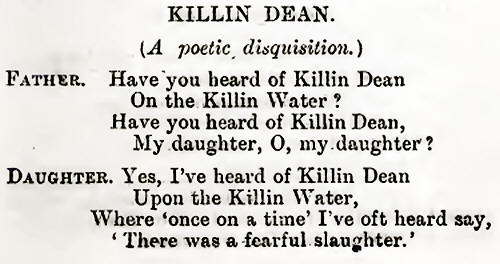
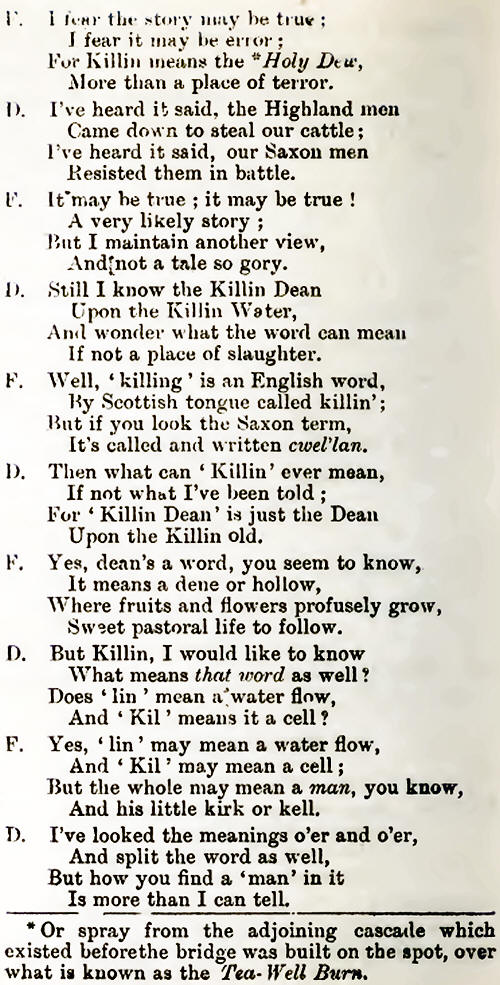
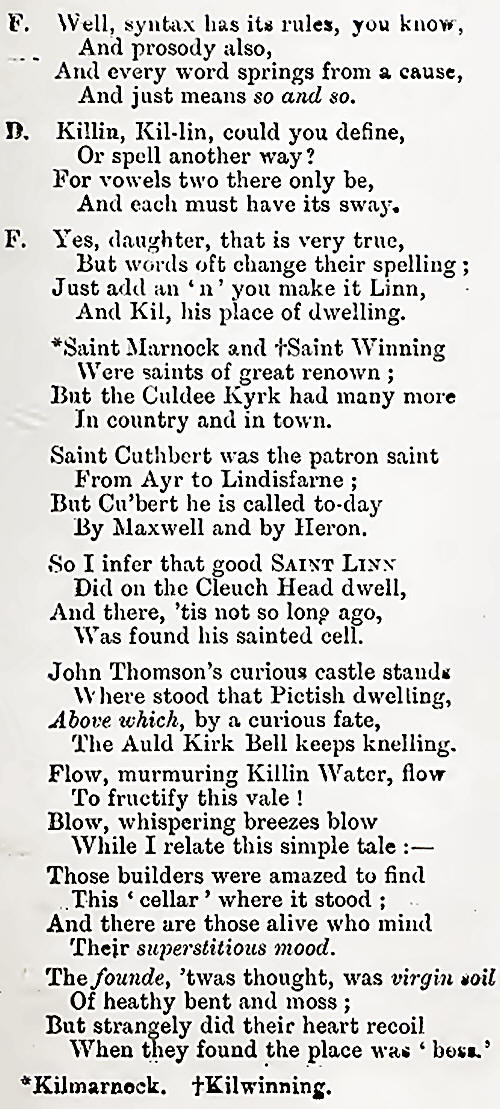
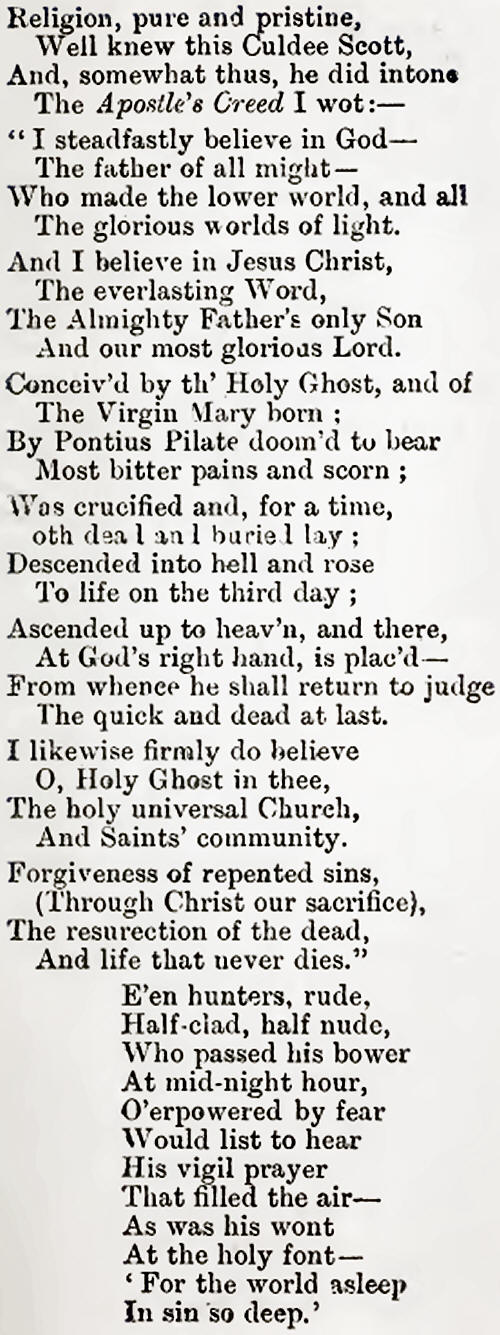
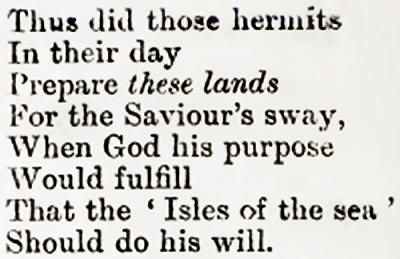
|

